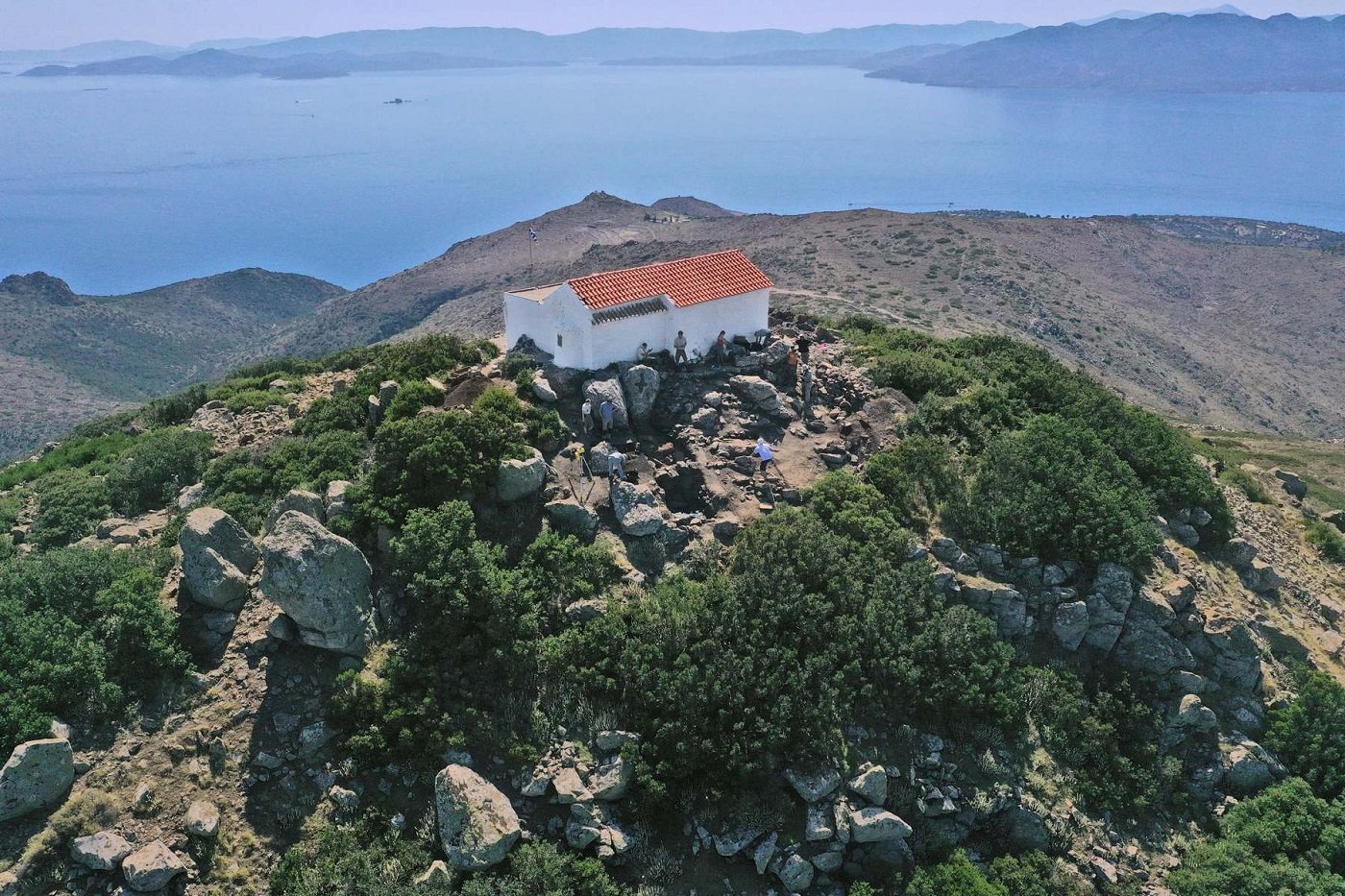A team of Archaeologists are conducting a study of Mount Ellanio, the tallest peak on the Greek island of Aegina.
Situated near the mountain summit is the Temple of Zeus Hellanios, a 4th century Greek temple where a 13th-century Byzantine church now stands.
A Greek-Swiss archaeological mission is currently conducting excavations on the summit to find traces of the mountain’s prehistoric occupation, in addition to finds associated with the Temple of Zeus Hellanios.
In a press statement issued by the Greek Ministry of Culture, the mission has discovered a Mycenaean building measuring 4.5 by 3 metres, in which they also uncovered over thirty ceramic vessels within the building’s interior.
Based on the form and style of the vessels, the researchers suggest that they date from the decline of the Mycenaean palatial system, a period of destruction between 1200–1050 BC.

The cause of the destruction has long been the subject of academic debate, with some theories suggestion a series of natural disasters, or a period of conflict – evidenced by a building program of defences around major population centres.
As a result of this turmoil, specific regions in mainland Greece witnessed a dramatic population decrease as Mycenaean refugees migrated to Cyprus, the levant, and several of the Greek islands.
According to the archaeologists, the people on Aegina likely settled on the summit as a refuge and for protection, as the mountain was already known to them as a place of worship.
To understand the surrounding landscape, the mission also conducted a surface survey which revealed traces of human occupation from the prehistoric period until the mid-20th century, including retaining walls, an ancient tower, quarries, rock inscriptions, and several abandoned settlements.
Header Image Credit : Greek Ministry of Culture
Sources : Greek Ministry of Culture





